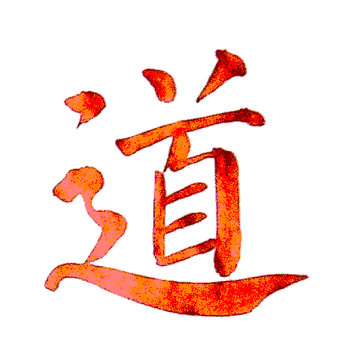Pick up the classic Chinese philosophy book titled Tao Te Ching and its logic may escape you. That’s how I felt when I read it years ago, puzzled by lines like “when nothing is done, nothing is left undone.” But taking a closer look today, it’s beginning to make more sense.
The Tao Te Ching is comprised of aphorisms (or sayings) that detail the principles of a philosophy called the Tao. Added together, these sayings have been alternately defined as “the process of the world,” “the way of life” and “the rules that underly the universe.” The book’s author, Lao Tzu, is thought to be an older contemporary of Confucius, and the Tao Te Ching dates back to 500 BCE, or 500 years before the birth of Jesus.
To put the Tao in context, in the The Way of Zen, Alan W. Watts tells us that in ancient Chinese society there were two philosophical traditions. One was Confucianism which concerned itself with ethical and legal matters, and the other was Taoism which dealt more with the understanding of life. Watts writes that Taoism was often a pursuit of the elderly, especially of those “retiring from active life in the community.” This pulling back from the world was seen as an “outward symbol of inward liberation” and allowed the person to pursue “unconventional patterns of thought.”
There’s a passage in the Tao Te Ching where the essence of the Tao is explained. Read it and it’s easy to imagine that, from a spiritual point of view, what’s being described is the essence of the universe or what you or I might call the Divine or God. See what you think:
The great Tao flows everywhere
To the left and to the right
All things depend upon it to exist,
And it does not abandon them.
To its accomplishments it lays no claim.
It loves and nourishes all things,
But does not lord it over them.
If I had to sum up the core teaching of the Tao in a few words, it would be “go with the flow.” In everything you do, in every action, follow the path of least resistance. Living with the spirit of the Tao means letting life happen, as opposed to trying to make things happen, as evidenced in these lines:
Less and less do you need to force things
until finally you arrive at non action
Watt tells us that the idea behind the Tao is to bring the mind into play not by forcing it, but by using our inborn, spontaneous intelligence. To do this, we use our mind like “a mirror.” Our mind “receives input but does not keep it, performing actions without worry.” When we operate in this manner, according to the Chinese philosopher Chuang-tzu: The notions of right and wrong and the praise and blame of others does not disturb us. We operate from the true self and not from the ego.
When you learn to leave your mind alone “it functions in the integrated and spontaneous way that is natural to it” and you begin to possess the special virtue called “Te.” In the Te state, the mind is constantly at rest, as if in a totally relaxed meditative state, “non-active and aimless.”
As Stephen Mitchell points out in the book God’s Breath, the philosophy found in the Tao Te Ching is often seen as taking “a passive approach” to the activities of our everyday world. Mitchell tells us “nothing could be further from the truth.” He explains:
A good athlete can enter a state of body awareness in which the right stroke or right movement happens by itself, effortlessly, without any interference from the conscious will. This is a paradigm for non-action: the purest and most effective form of action.
Mitchell tells us that when you move through life following this principle, “nothing is done because the doer has vanished into the deed.” He says this can happen when you “trust the intelligence of the universe” in the same way an athlete or a dancer trusts the instincts of their body. They don’t think so much as do. In the words of Lao Tzu this means you:
Act without acting
Work without working
Taste without tasting
Great or small many or few
Repay each wrong with virtue
Plan for the hard while it’s easy
Work on the great while it’s small
The hardest task in the world begins easy
The greatest goal in the world begins small
When you operate at this level, flowing with the stream of life and not against it, you also find an inner contentment, a way of knowing that transcends the intellect. Lao Tzu explains the mindset this way:
Without going out his door
He knows the whole world
Without looking out his window
He knows the Way of Heaven
The farther people go
The less people know
Therefore the sage knows without moving
Names without seeing
Succeeds without trying














